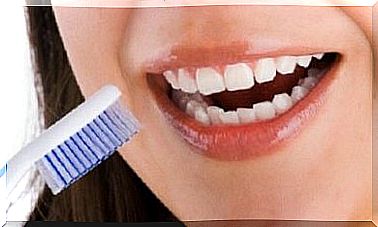Excess Hygiene And Resistance To Antibiotics
A recent investigation linked excessive cleaning with increased resistance of viruses and bacteria to drugs. Find out all about it here.

Did you know that the number of people who become seriously ill and even die from resistance to antibiotics is increasing each year throughout the world? In this article, we will tell you how excess hygiene influences this circumstance.
Antibiotic resistance and excess hygiene

Before diving directly into this topic, it is important that we conclude what exactly excess hygiene is. The reality is that this term is difficult to define but, in general, it is considered an excess of personal hygiene :
- Wash your hands constantly.
- Taking several showers a day without justification.
This circumstance could cause our immune system to lose functionality, that is, for example, the skin loses its protective barrier and be exposed to all kinds of bacteria.
And what about home hygiene? Constant cleaning with the same products could generate an accustoming on the part of the pathogens and therefore, they could develop a resistance to them.
What is antibiotic resistance?

Resistance to antibiotics occurs when they stop acting against microorganisms, that is, pathogens “get used to” the drugs.
Generally, this situation is caused by a habitual use of antibiotics (and even abuse of them). Somehow, the bacteria lose sensitivity and to combat them, it is necessary to resort to increasingly aggressive substances.
In recent years, mutations have appeared in microorganisms that are increasingly resistant to antibiotics. For example, in 2016, the newspaper El País published the story of a woman in the United States suffering from a urine infection resistant to the strongest antibiotic in existence.
The UK Department of Health requested an analysis of the antibiotic resistance situation. The same, known as Review on Antimicrobial Resistance , lasted two years and some interesting data can be extracted from it:
- Drug-resistant infections are on the rise.
- Around 50,000 people die each year in Europe and the United States due to antibiotic-resistant infections.
- At least 700,000 people die around the world from bacterial infections, AIDS or tuberculosis due to this problem.
- Resistance to medication would complicate routine surgeries and minor infections in the long run.
We have established that resistance to antibiotics is a risky problem that endangers public health throughout the world, but what is it related to excessive hygiene?
Relationship between excess hygiene and drug resistance
A study carried out by the Graz University of Technology (Austria) compared the microorganisms and antibiotic resistance existing in the Intensive Care Unit of the University Hospital of Graz. The conclusions were striking:
Put more understandably, it could be considered that extreme hygiene could be counterproductive. The research mentioned above advises maintaining stable microbial diversity to counteract the spread of antibiotic resistance. Now, how could this stability be achieved?
Specialists suggest that, instead of using a large amount of cleaning agents, it would be interesting to place indoor plants and regularly renew the air. In this way, bacterial diversity would be improved while the development of resistance to cleaning products would be avoided.
Regarding antibiotics, the World Health Organization (WHO) recommends avoiding taking antibiotics not prescribed by a doctor and requesting medication when it is not necessary, and, on the contrary, washing hands as the main way to avoid infections.
It is worth noting that you should not overdo your hand washing to avoid removing the protection from your skin and making you more vulnerable. The same goes for cleaning your home: keep it clean, but don’t go overboard! The presence of some bacteria helps us to keep our immune system strong and, in the long term, it is healthier.









